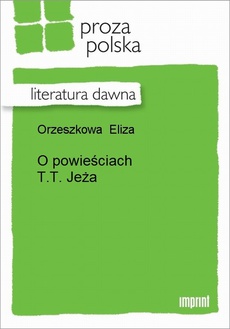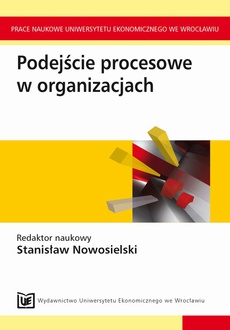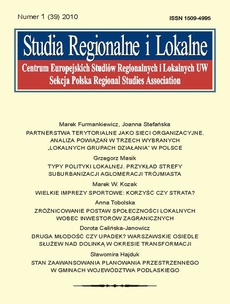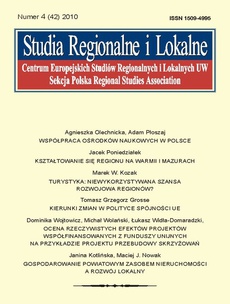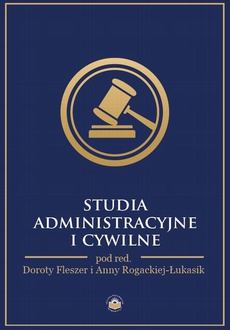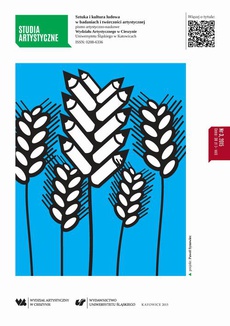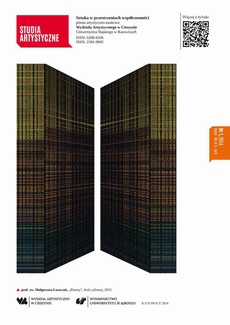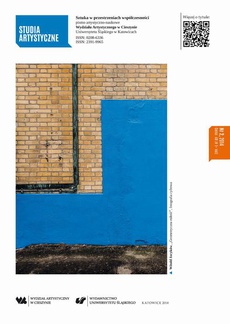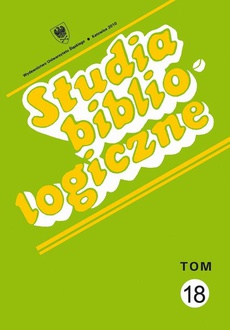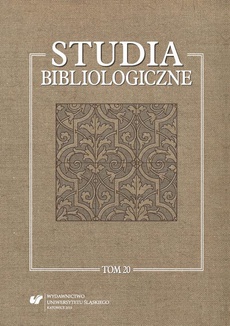POLECAMY
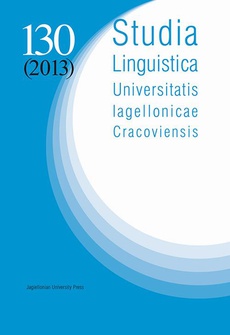
Studia Linguistica Universitatis Iagellonicae Cracoviensis Vol. 130 (2013)
Redakcja:
Format:
ibuk
The journal Studia Linguistica Universitatis Iagellonicae Cracoviensis was established after the Institute of Polish Studies (subsequently transformed into the Faculty of Polish Studies) separated from the Faculty of Philology. It constitutes a continuation of the publication entitled Zeszyty Naukowe Uniwersytetu Jagiellońskiego (Prace Językoznawcze).
The objective of the annual publication is to offer the possibility of publishing articles and academic reviews in the field of linguistics to the academic staff (also the retired ones), doctoral students as well as excelling MA students of the Faculty of Philology. We will also gladly print the valuable and still topical articles written by the members of our Faculty in the planned Archivalia section. Moreover, we welcome in our periodical articles authored by academics cooperating with the Faculty of Philology.
| Rok wydania | 2013 |
|---|---|
| Liczba stron | 372 |
| Kategoria | Publikacje darmowe |
| Wydawca | Wydawnictwo Uniwersytetu Jagiellońskiego |
| Numer wydania | 1 |
| Język publikacji | polski |
| Informacja o sprzedawcy | ePWN sp. z o.o. |
Ciekawe propozycje
Spis treści
| Aleksander Andrason, The semantics of the Vilamovicean verbal system (part 1: Empirical study) | 7 |
| Anna Bochnakowa, Linguarum totius orbis Vocabularia comparativa Augustissimae cura collecta (…), 1787–1789 | 41 |
| Cyril Brosch, Allein auf weiter Flur? Die indogermanische Pronominalflexion im typologischen Vergleich | 51 |
| Marta Dąbrowska, Functions of code-switching in Polish and Hindi Facebook users’ posts | 63 |
| Adam Fałowski, Comments on the lexis of an early 18th c. manuscript East Slavic dictionary | 85 |
| Przemysław Fałowski, Words of Romani origin in the Czech and Croatian languages | 95 |
| Marcin Jaroszek, L1 vs L2 spoken modality use: Theoretical considerations – part 1 | 117 |
| Marcin Jaroszek, L1 vs L2 spoken modality use: Theoretical considerations – part 2 | 129 |
| Marcin Jaroszek, L1 vs L2 spoken modality use – results of a study | 139 |
| Lechosław Jocz, The opposition */ʃ, ʒ/ ←→ */r/ in the contemporary central Cassubian dialect | 153 |
| Michael Knüppel, Das Jukagirische im Kreise der nostratischen Sprachen | 171 |
| Michael Knüppel, Nachschrift zu der Arbeit Sprachtabus in tungusischen Sprachen und Dialekten | 187 |
| Michael Knüppel, Professor István Futaky (12.5.1926–21.1.2013) als Tungusologe | 191 |
| Robert Kołodziej, Kontrastive Untersuchungen rechtssprachlicher Termini am Beispiel des polnischen und deutschen Arbeitsrechts | 199 |
| Corinna Leschber, Die Bienenzucht im Balkanraum – zu Mythologie und Etymologie | 223 |
| Michał Németh, Karaim letters of Jehoszafat Kapłanowski. I. A critical edition | 237 |
| Michał Németh, Karaim letters of Jehoszafat Kapłanowski. II. Linguistic analysis | 259 |
| Magnús Snædal, Gothic letter (and phoneme) statistics | 277 |
| Roman Sosnowski, Remarks on the language of Chirurgia parva of Lanfranco of Milan in the manuscript Ital. Quart. 67 | 297 |
| Marek Stachowski, Miechowita’s knowledge of East European languages (mainly Hungarian, Lithuanian and Tatar) based on his Tractatus de duabus Sarmatiis (1517) | 309 |
| Jadwiga Waniakowa, What the pencil and the sweet flag have in common or the migration of words and meanings | 317 |
| Alicja Witalisz, English linguistic influence on Standard and American varieties of Polish: A comparative study | 327 |
| Hubert Wolanin, On the (im)possible Latin etymons of Polish jarmułka (‘yarmulke, skullcap’) | 347 |
| Jacek Woźny, Force-motion schemas in metaphors of motion | 351 |
| Guidelines for authors | 369 |




